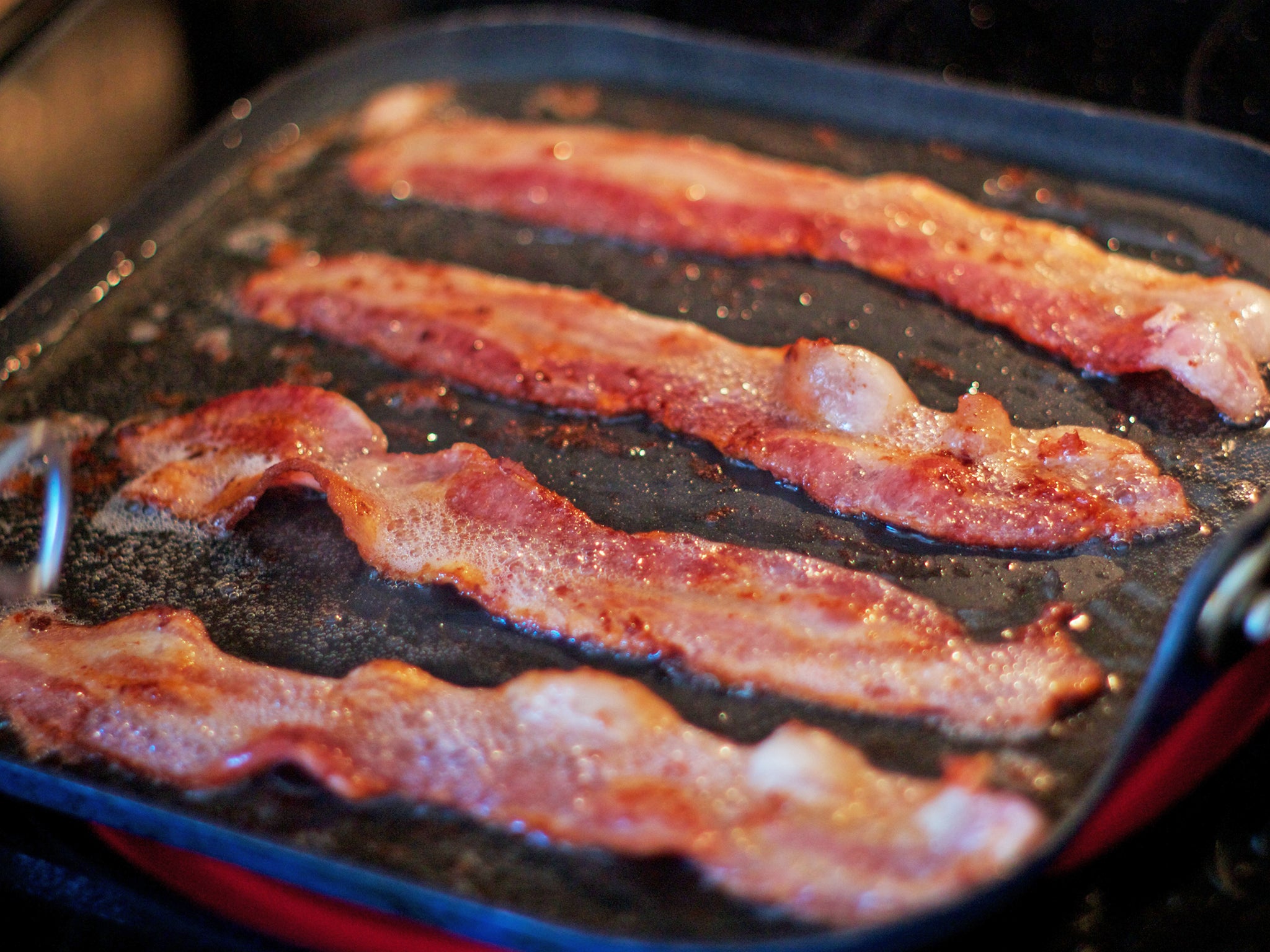Eating three rashers of bacon a day raises the risk of dying from heart disease, new study shows
Review of previous research also concludes that it raises cancer mortality risk by eight per cent

Eating three rashers of bacon a day could raise the risk of dying from heart disease by almost a quarter, a study has concluded.
The review of several different investigations into the health effects of processed meat dating back to the 1970s concluded that eating more than 50g a day could increase the risk of dying from heart disease by 24 per cent.
It also increases the risk of diabetes by 32 per cent and the risk of dying from cancer by eight per cent.
The research by the Karolinska Institute in Stockholm, Sweden, studied the dangers of eating red meat such as beef, veal, pork, lamb and mutton and processed varieties such as ham, sausages, bacon, frankfurters and salami.
It found that eating more than 100g of unprocessed meat a day also increases the risk of advanced prostate cancer and bowel cancer by 19 per cent and 17 per cent respectively, death from heart disease by 15 per cent and breast cancer by 11 per cent.
The report said a reason for this could be that the practice of cooking meat at high temperatures results in the production of chemicals called heterocyclic amines, which are believed to increase the risk of cancer in humans.
Meanwhile, processed meats contain much more salt, nitrites and chemical additives that occur when the meat undergoes treatment to extend its shelf life such as curing, smoking or salting.
Professor Alicja Wolk, who led the study, said: “During recent decades, consumption of red meat has been increasing globally, especially in developing countries.
“At the same time, there has been growing evidence that high consumption of red meat, especially of processed meat, may be associated with an increased risk of several major chronic diseases.
“Overall it’s plausible to conclude - taking into account the available scientific evidence - that high consumption of red meat and especially processed meat is associated with the increased risk of several major chronic diseases and preterm mortality.”
According to Professor Wolk, the 5-6 per cent global increase in meat consumption was largely due to the increased consumption of red meat in economically developing countries like China.
It comes after the World Health Organisation concluded in October last year that processed meat could cause cancer.
The body’s International Agency for Research on Cancer reclassified the meats as “probably carcinogenic to humans”.
Join our commenting forum
Join thought-provoking conversations, follow other Independent readers and see their replies
Comments
Bookmark popover
Removed from bookmarks